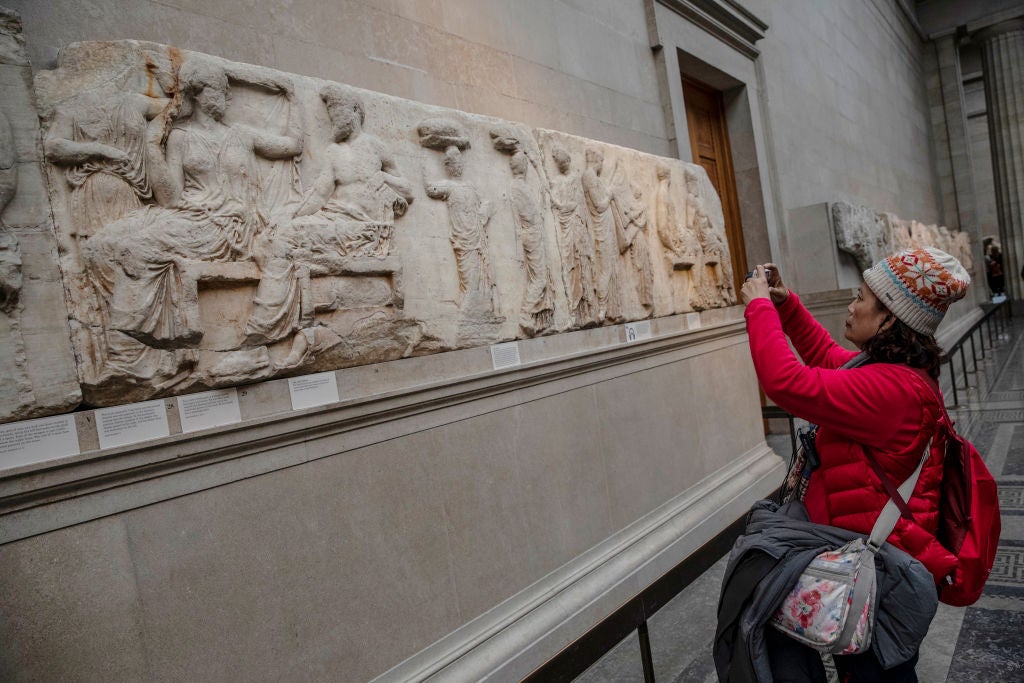Mea Culpa: let no one put the marbles asunder
Questions of style and use of language in last week’s Independent, by John Rentoul


Our attempt to use an interesting word resulted in our saying the opposite of what we intended in an article about the Parthenon sculptures in the British Museum: “Starting in 1801, Lord Elgin, then British ambassador to the Ottoman empire, spliced these pieces from their bases, and in 1816 he sold them to the museum, where they have been displayed since.” Thanks to Roger Thetford, who thought we meant “sliced”, because “spliced” means join together, as in marriage, originally referring to ropes, which are connected by interweaving the strands.
Did it happen? Thanks to Paul Edwards for spotting a couple of times when the use of “may” instead of “might” might have caused confusion. In an article about the success of Yellowjackets, the TV drama, we said: “The show’s rise to prominence, however, may never have happened if it were not for one critical factor …” It is reasonably clear what we mean, but there will be some readers who will trip over the possibility that the show’s success has not in fact happened. (The critical factor, by the way, was the decision to release one episode a week rather than dumping the whole series online at once.)
Then, in a report of the real-life courtroom drama in Australia over Novak Djokovic’s visa, we accurately reported a statement issued by the Federal Court: “Another person in the position of the minister may have not cancelled Mr Djokovic’s visa.” On the face of it, this implies that there is another person in the position of the minister, a doppelganger of Alex Hawke, the Australian immigration minister, who had made the opposite decision at the same time.
The “not” is in the wrong place, too. We cannot really edit court rulings, but the honourable justices should have said: “Another person in the position of the minister might not have cancelled Mr Djokovic’s visa.” Too late now, though. Djokovic is back in Serbia.
Nobody told me: Another example of ambiguity, which again is none of this column’s business but a useful illustration of the use of language, was the prime minister’s comment on Tuesday: “Nobody told me that what we were doing was against the rules.” It sounded like a peevish complaint that, although it was obvious that a “bring your own booze” drinks event in the Downing Street garden was against the lockdown rules, no one had told him, so he had gone ahead.
What he presumably meant was almost the opposite: that he assumed it was within the rules and nobody had given him any indication to the contrary. He seemed to be choosing his words carefully in that TV interview, but not carefully enough. I think we were justified in paraphrasing them for our front page thus: “No one warned me party was against the rules, says man who set the rules.”
Nautical confusion: In an article about how a single ship blocking the Suez Canal disrupted world trade, we said that the Ever Given, “buffeted by gale-force winds and travelling too fast, careened out of control and crashed into the bank”. Thanks to Henry Peacock who pointed out that “careen” now means “career” because it has been misused so often, but that we should prefer the original meaning. “Careen” means “clean and repair the hull of a boat”, so perhaps the nautical theme reinforced the confusion. But I would object that “career” would also be the wrong word, because the Ever Given is so huge that it must have moved off course in quite a stately fashion, however fast it was going.



Join our commenting forum
Join thought-provoking conversations, follow other Independent readers and see their replies
Comments